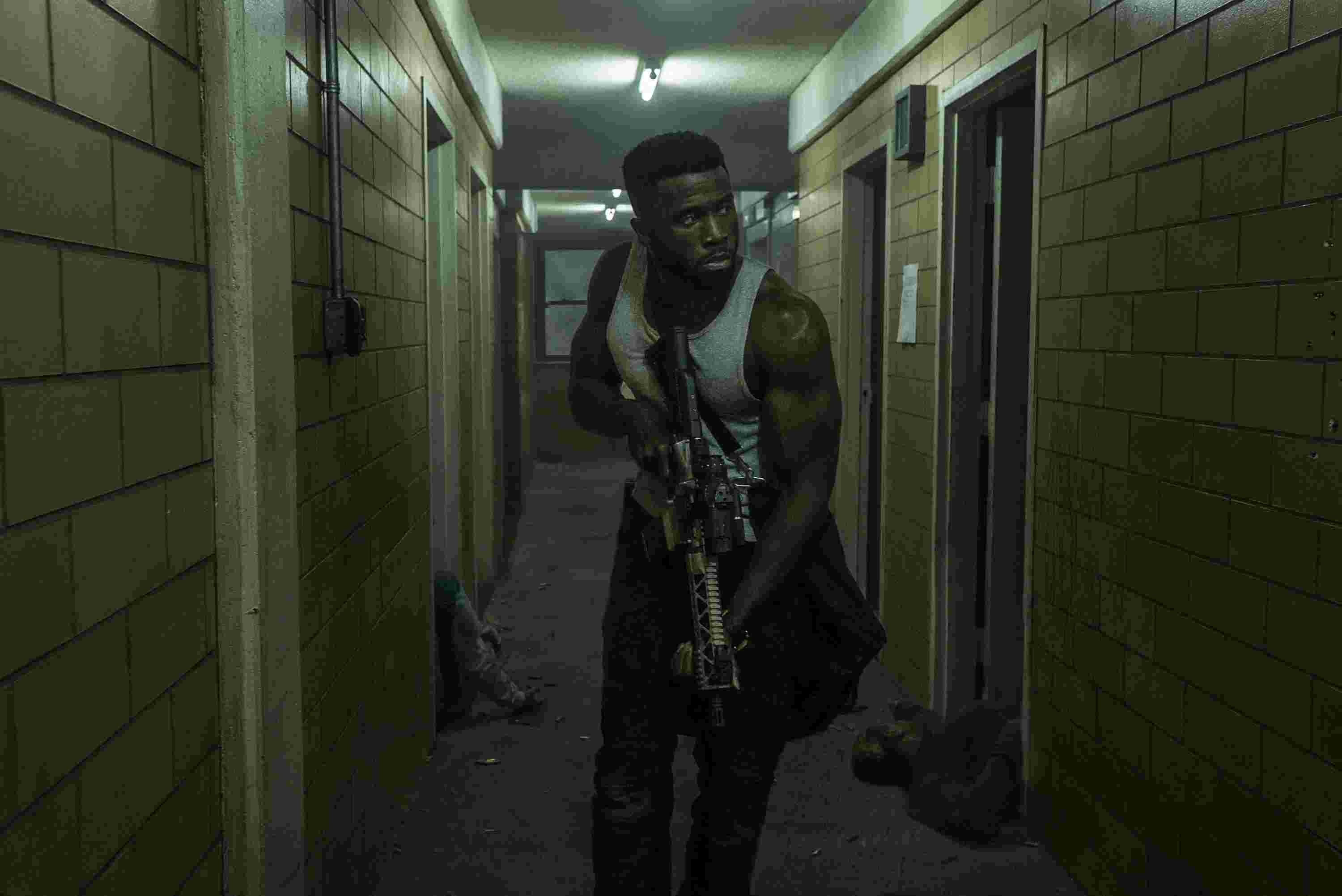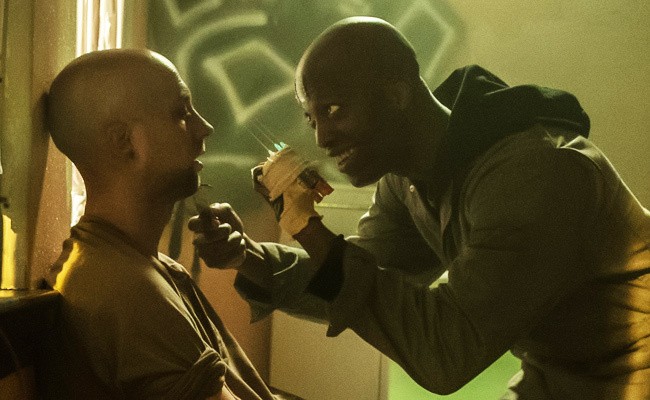What happens when reality catches up to your sci-fi movie concept? It probably looks a lot like The First Purge. And strangely enough, that means that The Purge series is actually Hollywood working properly.
I’m betting James DeMonaco didn’t think that his 2013 cheapo horror flick would end up being one of the most prescient works of the young century, but here we are. The premise of The Purge—for one night a year, all crime is legal—is brilliant from multiple angles. It allowed DeMonaco to do a zombie-type siege plot without the expensive undead makeup. And it calls out for a response from the audience: If all crime were legal, what would you do?

Director Gerald McMurray channels Die Hard with Y’Lan Noel in The First Purge.
I suspect that for most people, the answer would be less “murder spree” and more “drug binge with side of light looting”, and, indeed, that’s what happens at first when the New Founding Fathers (NFF) institute the first Purge experiment.
The borough was chosen for its favorable demographics—the white supremacist NFF have a lot invested in the idea that black and brown people will revert to murderous savages as soon as the shackles of civilization are thrown off. Proving them wrong are a diverse cast led by Dimitri (Y’Lan Noel), a gang kingpin, and Nya (Lex Scott Davis) as a former gun moll turned community activist. Her awakening to his destruction of the community drove them apart, but they’re both deeply suspicious of a white-run government program that pays people of color to kill one another.
Not so bothered by that idea is Skeletor (Rotimi Paul), a murder-crazed base head with a scarified face. And after Skeletor humiliates Nya’s little brother Isaiah (Joivan Wade) on the corner, the young man decides to pocket the money and wear the wifi contact lenses of the Purgers.

The dude on the right is Skeletor (Rotimi Paul).
DeMonaco stepped back into writing and producing, leaving the directing duties to newcomer Gerard McMurray. Visually, this film is the best of the franchise, which have always leaned heavily on good production design and let the cuts fall where they may. There’s even a fantastic, one-take, close quarters fight scene in a stairwell as a little show-off piece to demonstrate how far the B-movie series has come.
DeMonaco’s script seems much more interested in the political implications of his near-future world than the perfunctory violence. He takes care to position the NFF as a third party, neither Democratic nor Republican. But their rhetoric is straight up Turmpian racist word salad. The haughty Chief of Staff (Patch Derragh) wears the disinterested rich-boy smirk as he orders Russian mercenaries and Klansmen to burn down churches full of cowering New Yorkers. Marissa Tormei is largely wasted as the a sociologist who pioneered the bright idea that allowing people to be violent without consequence would cut down on violence, which is roughly the equivalent of trying to cure alcoholism with booze.
Sharknado notwithstanding, the low-budget exploitation picture with a not-so-secret agenda, once a time honored Hollywood product, is an increasingly endangered species.
For me, a lot of the fun of The Purge movies is watching the inventive ways the producers stretch the budget. In this one, my favorite is a lengthy scene that appears to be literally shot in and around the film’s production trailers. Nothing saves money like shooting in the dressing room.
The fact that these seven-figure pictures with Klansmen and gangbangers re-enacting Conquest Of The Planet Of The Apes has attracted a hundred-million-dollar audience says that DeMonaco has tapped into something deep in the national psyche. And the fact that they’re slowly morphing from sci-fi to social realism is deeply disturbing.
The First Purge